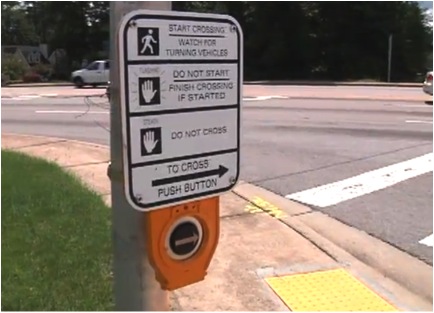Next month, 19 transit-related measures will come before voters. If the rest of this year is any guide, 16 of them will pass.

Despite a high-profile loss in Atlanta a few months ago, transit referenda have an 86 percent success rate so far this year, according to the Center For Transportation Excellence.
It strikes some as counterintuitive: During an economic downturn, in a virulently anti-tax climate, why are voters deciding time and time again to tax themselves to support transit?
CFTE Director Jason Jordan says the lousy economy is one reason so many of these measures keep popping up -- more this year than any other since CTFE started counting in 2000. With states crying poverty and the federal government, for the first time ever, passing a transportation bill that was no bigger than the one that preceded it, local governments have had to take matters into their own hands.
Jordan says the most unique of all of next month’s ballot initiatives is a gas tax measure in Memphis. Almost all the initiatives we see are sales taxes or property taxes, with a handful of bond measures and vehicle fees. Most cities don’t have the authority to raise gas taxes independent of the state -- but Memphis does, and it's trying to increase the tax by one cent to raise $3 million to $6 million for the transit authority. “Here we have an example of communities being pushed to be as creative as possible,” Jordan said.
No other local gas tax measure is on the ballot. Indianapolis has a citywide income tax hike in the works, which will also be novel, but they didn’t make it happen for this year.
Another one to watch is the half-cent sales tax in Orange County, North Carolina, which includes the city of Chapel Hill. If it succeeds, the three counties of the so-called Research Triangle will likely join together to improve their regional transit system. If it fails, the whole thing falls apart.
Durham County, North Carolina, approved its tax increase last year, just after the state legislature lifted a ban on local sales tax authority. Durham County is spending some of its new sales tax on local bus service and is holding some in escrow to build light rail with Orange County and Raleigh’s Wake County -- if they both approve it. Wake County was planning a vote for 2012 but decided to wait.
If the measure succeeds in Orange County, the pressure will be high for Wake County to follow suit. “This is a region that’s going to rise or fall together, in terms of regional transit improvement,” Jordan said. The city of Raleigh approved a bond measure last year and was awarded a $21 million TIGER grant for an inter-city passenger rail station.
The biggest bounty could go to Los Angeles, which will vote to extend 2008’s Measure R -- a 30-year half-cent sales tax increase -- for another 30 years to pay for a variety of roadway and transit improvements. The massive expansion of the federal TIFIA loan program has increased the pressure for the city to extend its revenue stream to pay for its transit expansion plan. Measure J, as it’s called, will require a two-thirds super-majority in order to pass. California cities depend on sales taxes because the state banned local property tax hikes in the 1970s.
Another contest to watch, Jordan says, is a one-cent sales tax increase in Richland County, South Carolina, where Columbia sits. About 60 percent of the tax hike, which they’re calling “the transportation penny,” would go to roads. About 30 percent would go to bus service, with about 8 percent devoted to bike and pedestrian improvements. More than anything, Jordan said, this vote would serve to validate a trend showing greater support -- and willingness to pay -- for transit in southern states.
That measure might have an uphill climb, though. Multi-modal initiatives like the one in Columbia used to be more common, but the prevailing wisdom these days is that voters prefer to support one project that they can wrap their heads around, as opposed to a smorgasboard with a little something for everyone. That criticism was lodged against Atlanta’s massive project list in the failed T-SPLOST vote and Seattle’s unsuccessful car tab measure last year.
Jordan warns that municipalities shouldn’t put too much faith in revenues from sales taxes, however. He said that created problems in Denver, when the recession drove sales down and the city ended up with less revenue than expected for its transit expansion -- meaning FasTracks will be slow-tracked.
Kansas City, Missouri is trying its luck with a one-cent sales tax to be collected within the downtown streetcar district. They’re holding a special mail-in election on the matter, with ballots due December 11. That’s its first hurdle. The second is the fact that, according to Jordan, Kansas City gets the authority from Missouri to go to voters with initiatives like this, but never from Kansas. That makes it challenging to plan improvements for the whole city.
These are just a few of the transit-related contests on the ballot November 6. Jordan says his group doesn't track roadway ballot measures as closely, but we’ll bring you more on those and other election news over the next four weeks.





